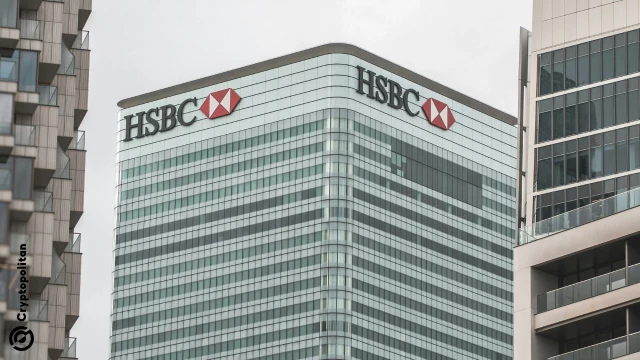
HSBC to roll out tokenized deposits for U.S., UAE clients in 2026
Cryptopolitangeneral
HSBC plans to offer tokenized deposits to its corporate clients in the U.S. and the UAE in the first half of next year.
📋 Article Summary
HSBC Pioneers Tokenized Deposits: A Transformative Step for the Banking Sector
HSBC, the multinational banking giant, is set to revolutionize the way its corporate clients in the U.S. and UAE manage their deposits. In a groundbreaking move, the bank plans to offer tokenized deposit services starting in the first half of 2026, marking a significant shift in the financial industry.
The tokenization of deposits is a game-changing concept that has the potential to redefine the landscape of traditional banking. By converting fiat currency deposits into digital tokens, HSBC aims to provide its clients with increased transparency, enhanced security, and greater flexibility in managing their funds.
One of the key advantages of tokenized deposits is the ability to leverage blockchain technology. This decentralized and tamper-resistant infrastructure offers a level of transparency that is often lacking in traditional banking systems. Clients will be able to track the movement and status of their deposits in real-time, providing them with a heightened sense of control and visibility over their financial assets.
Furthermore, the use of blockchain-based tokens can significantly enhance the security of deposit management. By leveraging cryptographic techniques and distributed ledger technology, HSBC can ensure that client funds are safeguarded against unauthorized access, fraud, and other potential threats that plague conventional banking systems.
The implementation of tokenized deposits also holds the promise of increased efficiency and reduced transaction costs. By automating various processes, such as settlement and reconciliation, through the use of smart contracts, HSBC can streamline its operations and pass on these benefits to its corporate clients. This, in turn, can lead to improved cash flow management and more effective utilization of financial resources.
The move by HSBC is particularly significant in the context of the evolving cryptocurrency and blockchain landscape. As the adoption of digital assets continues to grow, the integration of tokenized deposits into traditional banking services represents a crucial step towards the mainstreaming of these technologies. It signals a broader industry recognition of the transformative potential of blockchain-based solutions and their ability to enhance the overall financial ecosystem.
However, the integration of tokenized deposits is not without its challenges. Regulatory oversight and compliance will be crucial as HSBC navigates the complex landscape of digital asset regulations across different jurisdictions. Ensuring seamless integration with existing banking infrastructure and client onboarding processes will also be a key focus area for the bank.
Despite these hurdles, the launch of tokenized deposits by HSBC is a testament to the bank's forward-thinking approach and its commitment to staying at the forefront of financial innovation. As the industry continues to evolve, this move by HSBC is likely to inspire other financial institutions to explore similar initiatives, ultimately driving the widespread adoption of blockchain-based solutions in the banking sector.